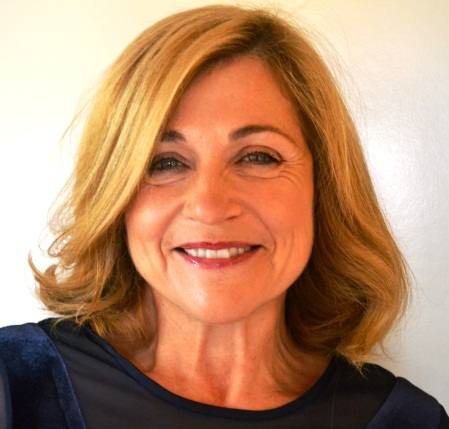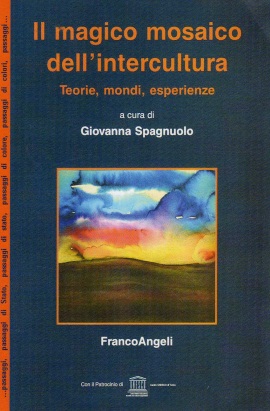Multiculturalism: how women can contribute in developing models of integration
Interview by Alessandra Zocca
|

|
|
Rita Nasini
Entrepreneur and Member of “Club Donne d’Europa”
|
Rita, you have been deeply involved in the topics of integration of different cultures in Europe. What has inspired you and still keeps you intrigued?
Alessandra, I started getting really involved in these topics when, in 2000, I became a member of the “Club Donne d’Europa (Women of Europe)” in Ispra, in the province of Varese (Italy), where I stayed until 2008. In fact our family moved to Ispra when my husband took a position at the Joint Research Centre (JRC) of the European Commission.
The “Club Donne d’Europa” was created in 1959 in Ispra, with the opening of Euratom research centre, the actual Joint Research Centre (JRC). In that period the spouses (mostly women) of the senior managers/executives, coming from the principal European capitals to work at this nuclear research centre, socialized together and created a web that would sustain them despite their daily difficulties. Now, by affirming the strong social character of the Club “Donne d’Europa”, the JRC included it in the “Family Network”, a network which supports its staff.
At the beginning I was attracted by the various activities of the club, subsequently I was heavily involved in the organisation of conferences about multiculturalism, for example the one we organized on the occasion of the celebration of March 8th, International Women’s Day, an opportunity to participate and to discuss about topics of interest to all women: the social contribution of the female model. We were inspired by the 2007 UNICEF Report "The State of the World", in which they state that the “objective of the third Millennium is to promote equal opportunities and empowerment of women”.
To untie the knots of gender inequality, women must fight to become aware of their rights and to recognize and defend the female model inspired by caring for others.
Why still intrigued? Right now, with the Europe of 27 countries with different languages, religions and social diversity, I firmly believe it is necessary to support the different cultural realities through a path of integration, flexibility and multicultural education. European citizens will increasingly demand the ability to go from their own cultural identity to the understanding of other ones without fear and prejudices.
Could you please tell us more about the “Club Donne d’Europa”? Its mission?
“Club Donne d’Europa” has become an association legally registered with a Legal Statute approved on the 9th March 1999. In June 2012 the club changed its name in "Club Europeo Ispra (European Club of Ispra)”.
The Club currently consists of 500 members, principally wives, husbands and partners of the management working at the Joint Research Centre (JRC) of the European Commission. Furthermore, the parents of the students of the European School and local residents of Ispra are also accepted.
The mission of the Club since its origins has been and is to:
- Help the managers of the JRC and their families with services aimed at helping and improving their integration into a new social community
- Favour social encounter, the transfer of knowledge from different cultures in order to support the inclusion of individuals and their families in a context other than the one of origin
- Create a stronger cultural cohesion, develop and ameliorate the integration of the different members regardless of their nationality, culture and language.
What are the main activities of the Club?
The Club’s activities are all outside the sphere and the influence of political, religious or race discrimination
For each activity a person is assigned, who is responsible for its organisation and provides all the information required, as a single point of contact.
The main club activities include:
- “Monthly Coffee”: the monthly Coffee is one of the most important activities of the Club where the members can meet and to discuss the new initiatives and possible issues. The Coffee is also a means to socialise and where the new members can meet up and get to know the organisation. Moreover, the monthly Coffee is a free space where the members can share their stories and testimonies of their lives in different cultural, religious backgrounds (for example, countries far from Europe like Pakistan, Mexico, Poland and the Arab Emirates)
- Languages classes: each year almost 30 languages classes are organised by the club. The most popular are the Italian, French, English, German, Dutch, Greek, Spanish and Russian classes. The classes are divided into different levels so that each member can find his/her way. The Italian class is one of the most requested from the new members just transferred to Italy. Moreover, there are conversations classes and classes dedicated to young mothers with their babies. The teachers are native speakers, and professionally experienced.
- Playgroups: Groups exist to help new moms and future ones.
The club has a particular policy of welcoming new moms and future ones who are more sensitive to changes and show more difficulties in integrating into the local community. Meetings are organised to encourage these mothers to share their information and to solve their problems. The Play group, are meetings with activities and games for children under 3 years old and their mothers. Moreover, theme parties are organised at different times during the year.
Outside the work hours activities such as yoga and gymnastics classes are organized for both parents and children
- The Gardening Group: once a month a group of members meet to improve and share their knowledge on the different type of plants, flowers, trees, etc. and to organize visits to the most beautiful gardens of the region
- Travel: trips are organized to show the beautiful countryside and to visit some Italian cities, exhibitions, museums and parks
- Charity activities: these markets are created in collaboration with charity organisation, such as the Comitato Insieme and with the Bazar-Mercatino of Christmas
- Sporting Activities: the organisation of these activities takes a big part of the Club’s time.
They range from activities such as light gymnastics for the elderly, aerobics and modern dance for the younger, yoga and qi gong for those who wish a more relaxed and calm atmosphere, to stretching for everyone
- Conferences, seminars and cultural workshops: many cultural events are organized to meet experts in a wide selection of disciplines, who are willing to share their stories.
Also workshops are organized to learn practical skills such as: “presentation techniques” and classes dedicated to fashion, decoration, singing, music, history, theatre and cinema.
In 2006-2007 I personally spent a lot of time in organizing conferences on the theme of multiculturalism and cultural integration together with the Unit “Servizi Sociali (Employee welcome desk) of the JRC”. These conferences explored the theme of being welcomed into different communities and the possibility of developing specific models of integration.
 Rita, you also wrote a chapter in the book "The magic mosaic of inter-cultural"* about your experience with the club “Donne’Europa” …
Rita, you also wrote a chapter in the book "The magic mosaic of inter-cultural"* about your experience with the club “Donne’Europa” …
Yes, indeed, I narrated my experience as volunteer for “Donne d’Europa” in a dedicated chapter of this book edited by Giovanna Spagnuolo, researcher at ISFOL (an Italian ministerial institute for professional training and development). This book - sponsored by UNESCO -collects cases of intercultural integrations and the surrounding issues.
Giovanna Spagnuolo was the speaker at some of the conferences we organized with the club, for example:
- “Multicultural education and welcome models: at work, school and family” in October 2006.
Inspired by the “European year of the professional mobility” in 2006, this conference drew the attention to the fact that professional mobility is an experience that changes the social and cultural dimension of the involved people and their families.
- “The strategy of permanent learning and adults” in October 2006.
The conference addressed the European Commission guidelines to support lifelong learning: Education and training are not only a means of access to knowledge, competence, qualification for the labour market, but also an effective way of social integration, they allow the individual to strengthen skills, to re-enforce the identity of the citizens, to give self-confidence and to create a network of relations.
- "Intercultural and equal opportunities: the contribution of the female model" on 8th March 2007.
The UNICEF report - mentioned previously- shows that the equality of gender and well-being of children go hand in hand, the close relationship that exists between the living conditions of women and living conditions of children: if women live fully and actively their lives, children grow up well, if women are denied equal opportunities in society the first to suffer are children.
Rita, anything else you would like to share with our readership?
Let me say, Alessandra, that the history so far written by the Club, through its experience in these 48 years, demonstrates the ability of the Club’s adaptability to the needs of the Centre and its ability to respond to requests that change over the years.
The spirit and soul that animated the Club is founded on multiculturalism, tolerance, solidarity and mutual respect, always the most important aspects in the evolution of our society.
I invite you to visit the website to learn more and keep up to date on its developments: http://www.clubeuropeo.it and on Facebook.
Alessandra, in case my experience with the club “Donne d’Europa/Club Europeo Ispra” could interest some PWI Magazine readers in similar activities, I will be very happy to share it and to provide my suggestions.
| Short Biography |
|
Rita Nasini
Postgraduate degree in European studies, Master in Political and public communication.
Rita has worked and gained expertise in the following areas: professional training, language training for adults, learning technologies, organizational sciences, change management, sociology and labour law, human resources management, psycho-sociological analysis, recruitment, public and political communication, public speaking.
She has been a Volunteer from 2000 to 2008 in the “Club Donne d’Europa” now “Club Europeo”.
She has organized workshops and management conferences in partnership with JRC and Family network organizations:
- 2006 “Educazione alla multiculturalità e modelli di accoglienza: al lavoro, a scuola, in famiglia” (multicultural education and welcome models: at work, school and family) Club Donne d’Europa, JRC Ispra Italy.
- 2008 “2008 anno europeo del dialogo interculturale: il ruolo della ricerca, dell’istruzione e della formazione” ( 2008 Euopean Year of intercultural dialogue: the role of research, education and training ) in partnership with: Isfol, JRC Ispra, Club Donne d’Europa, Unesco, Comune di Ispra.
In 2011 and 2012 Rita worked at the EU Commission.
Currently Rita has initiated a challenge as an entrepreneur.
Rita Nasini
rita_nasini@libero.it
|
Disclaimer -
Any views and opinions presented in this article are solely those of the author and do not necessarily reflect tof the club “Donne d’Europa”, nor do they constitute a legally binding agreement.
REFERENCES
* Giovanna Spagnuolo, "Il magico mosaico dell'intercultura. Teorie, mondi, esperienze", published in 2007 by Franco Angeli Edizioni with the sponsorship of UNESCO.
.png)
.png)